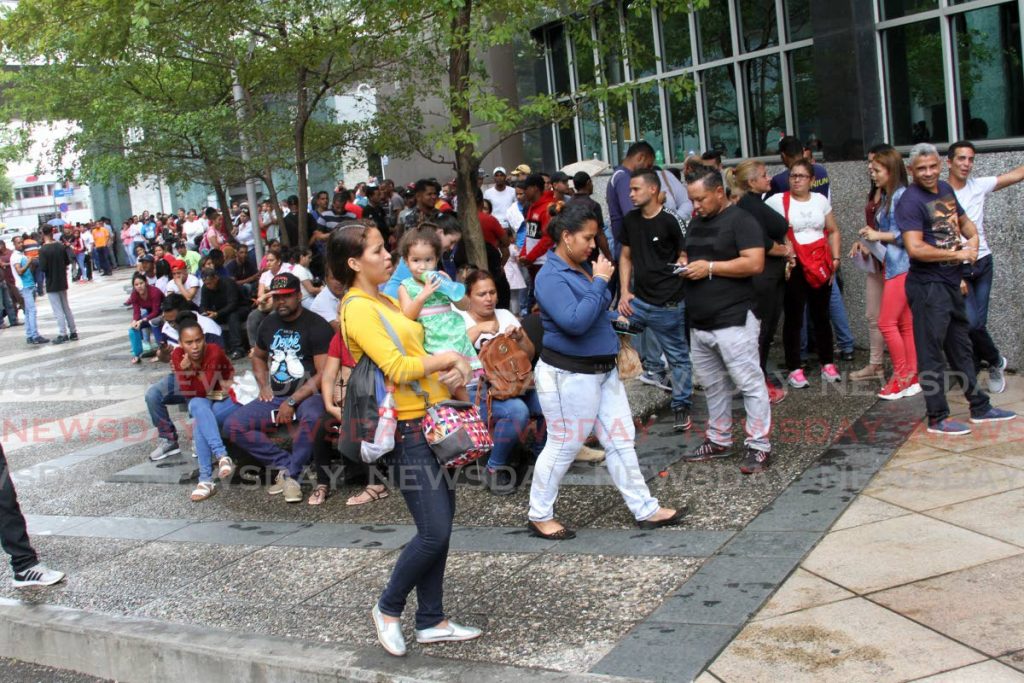The immigration untruth

Nationalism is a political idea that is grounded in the sovereignty of a people with a land, a culture, a language, a history, a government and other defining elements of a state.
It is also often a political tool, easily used to divide people, since by including some it inevitably excludes others.
At election time it almost always arises as a way of directing public grievances towards immigrants – those people who are not like us – to deflect from the failure of a government to create more jobs, adequate housing, better infrastructure and a host of other unmet promises. Immigrants have very broad shoulders and carry the sins of the world on their backs.
It is a mistaken and unexamined nationalist belief that people changing homelands is somehow not natural. There is the general assumption that new arrivals all have differing ideas and interests and represent a threat to our wellbeing. The “them” and “us” attitude to the outsider, which has taken root universally, conditions our responses to the most common fact about mankind: that is, that we populated the world through the mass movements of people out of Africa millennia ago and it is an ongoing process.
The periods of dominant western empire – Roman, British, Spanish, French, Russian – allowed people to move pretty freely across cultural, linguistic and geographical borders. In Europe, that freedom of movement was recreated through the open borders of the European Union, something loathed by the British islanders, who in an impressive act of self-harm, voted for Brexit, after wilful misrepresentation of the economic facts by the Leave campaign.
In every political decision, an economic imperative lurks just below the surface. With regard to immigration, governments play on citizens’ common fear of the outsider at a political level while knowing that an injection of fresh labour is a benefit for economic and often social reasons. This is clear when one considers that, with the pandemic at its height last year, some people at the bottom of the economic tree, such as the migrant, unskilled, unregularised labour in the various service sectors around the world, where jobs have disappeared most, were suddenly reclassified as “essential.” along with the settled immigrants in undervalued jobs. Together they kept hospitals and care homes operational, shop shelves stocked and food production alive.
In Europe, many migrants were summarily granted temporary work permits, only to have them revoked when the pandemic seemed to be easing up, leaving them with no access to support grants and no legitimacy. Even outside of the pandemic, migrants are badly treated. I read about a recent study which found that migrants in already low-wage jobs are often paid well below the legal minimum wage. These underpayments are estimated to cost those workers US$50 billion per annum in the US alone. Here in Trinidad and Tobago, our refugee Venezuelans are subjected to widespread wage exploitation and other injustices, some are also victims of human trafficking because their situation has not been sufficiently normalised.
I am advocating that while our borders need to be less porous, we must see that the arrival of tens of thousands of unasked-for, young, healthy people as a gift. It is not easy to manage a sudden influx of people who speak a different language which we have been careless not to have learned, considering that our nearest neighbours represent a huge, still largely untapped market for our goods and services. Yet we would be well advised to provide the newcomers with robust legal status, to find ways to make them linguistically proficient and to integrate their skills into our workforce, thereby enabling them to be properly paid, for their children to be educated and their health to be taken care of. We are creating an underclass of poor people instead of valuing what they might add to the economy and to society.
Our economy is facing challenges and we must reshape it to the post-fossil-fuel era. It requires a new way of regarding our economic future, with a diverse and adequate workforce.
We need to sort out the state pension scheme, which suffers from insufficient funding coming from workers’ contributions. The fact is that the birth rate has fallen while our population is ageing, which means each worker will have to support more state pensioners. Where is the additional workforce and taxpayers to come from?
The only immigration we are likely to have is from Caricom countries, which have to confront similar or worse scenarios. It would be useful to re-examine our approach to the new arrivals.
It is a common mistake to attempt to exclude immigrants from society, contributing to the ease of their exploitation, while depriving the country of much needed labour. Just ask anyone engaged in food production about the acute labour shortage in Trinidad and your ear will burn for a few hours.
It is a well established fact that receiving countries are net beneficiaries of immigration if they are adept at harnessing its potential for growth. The losers are the countries left bereft of their human capital.



Comments
"The immigration untruth"